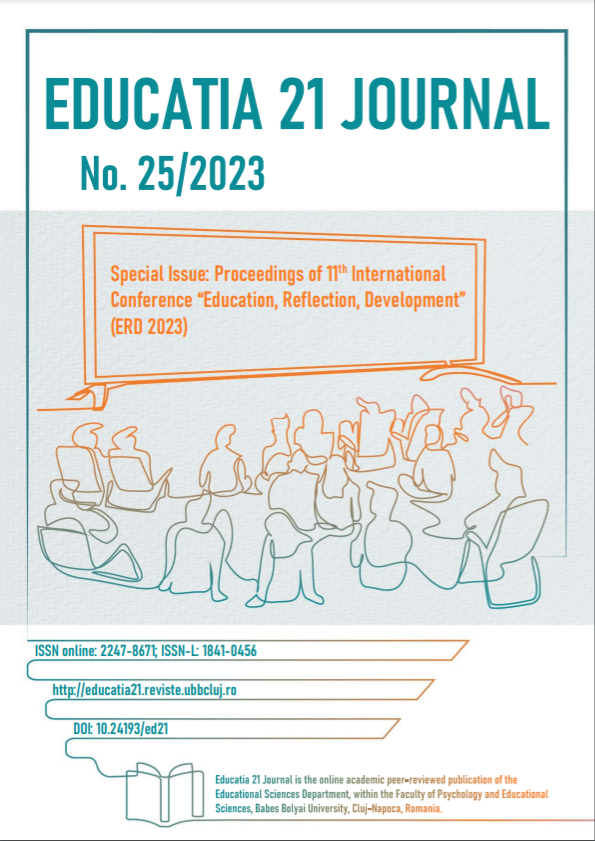Use of Technology to Increase the Quality of Collaborative Learning Experiences for Engineering Students in the Post-Pandemic Period
Use of Technology to Increase the Quality of Collaborative Learning Experiences for Engineering Students in the Post-Pandemic Period
Author(s): Marius-Daniel Calin, Crinela PislaruSubject(s): Pedagogy
Published by: Universitatea Babeş-Bolyai
Keywords: blended learning; engineering education; growth mindset; problem- oriented project work;
Summary/Abstract: This paper focuses on the changes made to the design and delivery of course materials and lab sessions for an Engineering module in the post-pandemic period – aiming to keep a balance between hands-on experience and use of digital technology as part of the students’ socio-emotional learning (SEL) experience and development of emotional intelligence, employability skills required by Industry 4.0. The flipped classroom approach facilitated the students’ engagement in authentic and valuable learning experiences as active partners in the process of sustainable knowledge creation enabling the development of their growth mindset in constructive, active, intentional, cooperative, and authentic ways. The practical lab sessions aimed to develop the students’ manual dexterity and soft skills while preparing the lab work technical reports enabled the improvement of their creative and critical thinking skills through inquiry and reflective writing.The problem-oriented project work (where students examined and provided creative and innovative solutions for real-life situations through collaboration and problem-solving experiences) has increased their motivation, engagement, performance, persistence, and their capacity to give and receive constructive feedback by positive engagement with online discussion forums. The continuous cumulative assessment encouraged students to reflect on their performance and refine their learning practices to become career-ready engineering practitioners. The efficiency of the proposed approach was evaluated by conducting semi-structured interviews with students, analysing student’s academic performance and lecturers’ observations while engaging in classroom-based research. In conclusion the weaving of academic grace into the fabric of hybrid engineering courses has increased the quality of collaborative learning experiences for students.
Journal: Educatia 21
- Issue Year: 2023
- Issue No: 25
- Page Range: 72-80
- Page Count: 9
- Language: English

